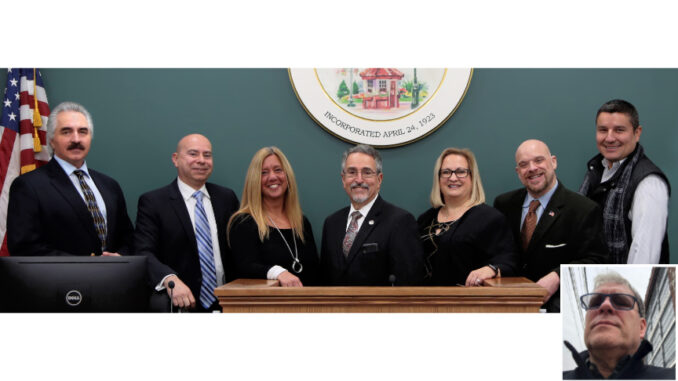
HILLSDALE—Mayor John Ruocco has requested that the three state representatives from the 39th District propose legislation to amend the nearly 50-year-old state Open Public Meetings Act and make agreements and attachments noted on meeting agendas available online to the public in advance of public meetings.
On March 18, Ruocco wrote to fellow Republican colleagues State Sen. Holly Schepisi, Assemblyman Robert Auth and Assemblywoman DeAnne DeFuccio to urge them to initiate legislation to amend the Open Public Meetings Act. Late in 2021, he appealed to the state’s Government Records Council to ask whether it could make a determination on whether the current “advisory, consultative and deliberative” (or ACD) exemption allowed under the Open Public Records Act (OPRA) should serve “as the screen for deciding what the public can see when the governing’s body’s agenda is made available to the public in advance of the its public meeting.”
He said the exemption “should not outweigh the interests of the public to know what its elected officials are discussing during a public session of the governing body, nor eviscerate the opportunity of the public to ask targeted questions of elected officials during the meeting.”
The GRC told Ruocco that the issue he presented was not a proper one for their review under OPRA, but fell more under the Open Public Meetings Act, which outlines how agencies must meet as a body and related to the definition of what a meeting “agenda” should include.
(Related: “What to ‘Spotlight’? Ruocco, council spar on records policy,” Pascack Press, Feb. 4, 2022.)
Redevelopment plan, budget, community center, turf field throw sparks
Throughout 2021, Ruocco fought heated battles with council members over what the council should release to the public, pressing for release of the Patterson Street Redevelopment Plan as well as the annual budget and proposed plans and budget for a new community center and turf field.
Ruocco contends that if a document is basically complete and going to be discussed or voted on at a meeting of the mayor and council, that document should be made available to the public prior to the meeting for review and an informed discussion.
“I am asking that you initiate legislation that incorporates an amendment in the OPMA (Open Public Meetings Act) that would define the term ‘agenda’ to include agreements that are referenced in resolutions or explicitly incorporated therein as attachments to such resolutions, the latter listed for approval by the governing body in its public agenda,” Ruocco implored the legislators.
“This change to OPMA would clearly set the expectation that such agreements and attachments should be made readily available via electronic links to public agendas that are now universally available to the public via the internet whenever the governing body posts its agenda on its website,” he said.
In his brief outreach to the legislators, Ruocco said, “The change I am proposing recognizes the vastly changed technological landscape of municipalities that now make their Council agendas available to the public on-line and would define the expectation that agreements brought before the governing body in public session for approval via resolution be made available to the public at the same time the agenda is posted.”
He continued, “This would rectify the present situation where the public has little idea what is being voted on, cannot make informed comments or ask questions of their elected officials prior to the vote, and are forced to make the extra effort of preparing an OPRA request thereafter in order to know what was passed/rejected by their elected officials.”
He called using the exemption an “antiquated approach.” He noted, “The so-called ACD exemption may be fine to protect from the public eye draft documents that are still being developed, but when they emerge from committee or staff internal review and are presented to the governing body for a formal discussion and vote, the interests of the public to know what is being discussed in open public session should take precedence.”
Ruocco said as of March 21, none of the three legislators had yet responded.
